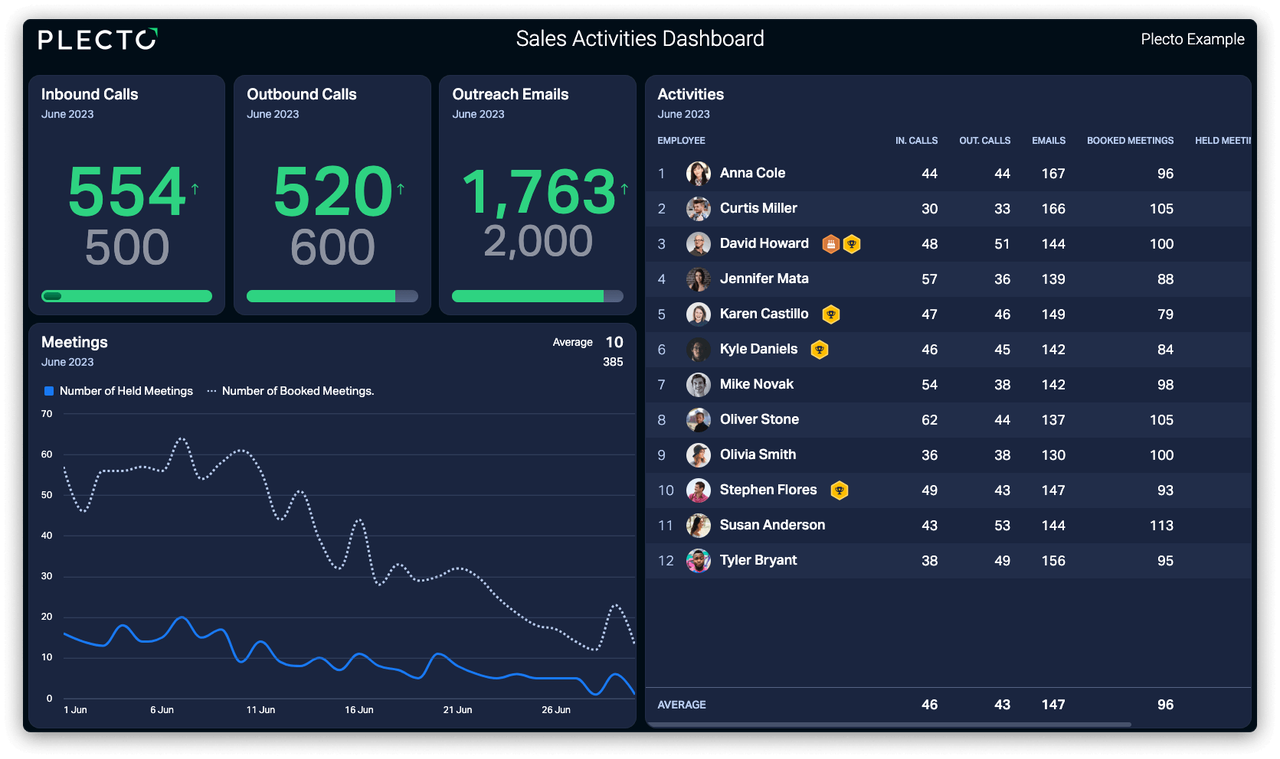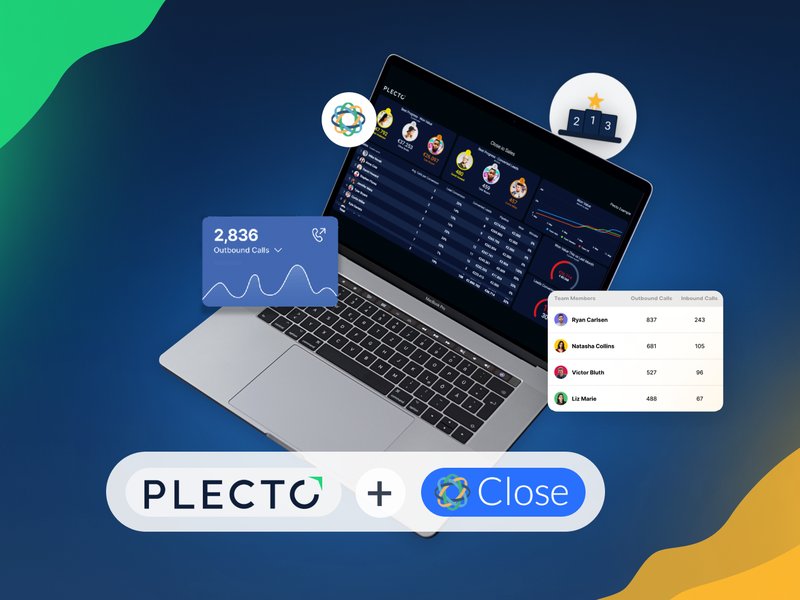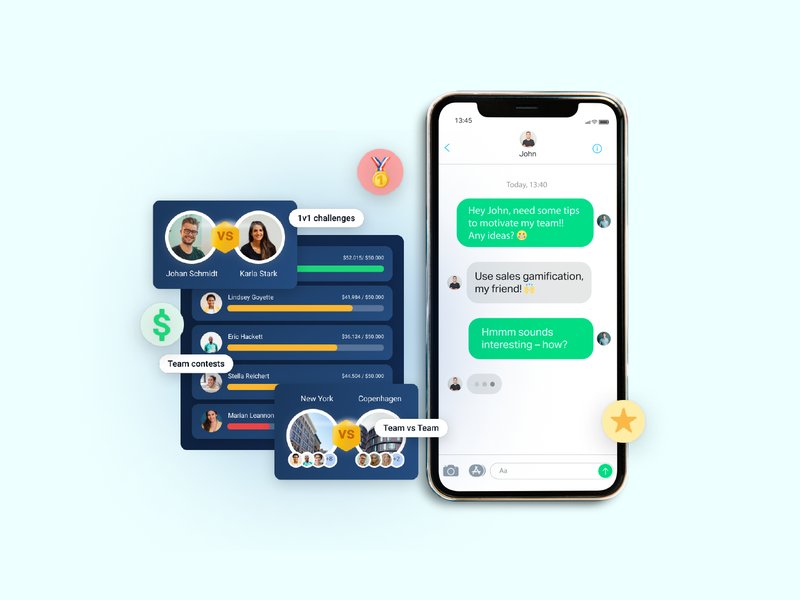When you first get started in sales, you learn a few things right away. One of the key sales fundamentals that you’ll learn early on is that you should be maximizing the number of prospects you contact each day. After all, more contacts will always add up to more sales.
Right?
Maybe not.
One of the many important lessons we have learned over the years is that meaningful engagements with prospects are far more important than sheer call volume. If you can spend time getting to know a prospect, and building a genuine relationship, that effort will be far more useful in the long run than just racking up as many dials as possible.
This way of thinking can seem radical to the ‘old-school’ sales professional, but it really works. In this post, we’d like to highlight four key reasons that it’s more important to build relationships than maximize your call velocity.
#1 – Embrace the Gatekeeper
In all but the smallest organizations, there will be gatekeepers who manage various tasks and prevent the decision-makers from being tied up by sales calls all day long. The specific role of this gatekeeper within the organization will vary from business to business, but this is often where the sales journey starts. If you are calling to discuss a product or service, you are going to start with the gatekeeper rather than the decision-maker.
Unfortunately, sales professionals often attempt to get past the gatekeeper as fast as possible. Most of the time, the gatekeeper is doing little more than playing ‘defense’ – acting as a wall between the decision-makers and the outside world. This is where you have an opportunity to be different. Instead of looking for the quickest path around the gatekeeper, make a choice to engage that individual and value their time.
If a gatekeeper can’t make an actual buying decision, why would you invest your time with this person? There are plenty of potential benefits –
- An inside ally. Think about it – if you turn the gatekeeper into a fan of your product or service, you’ll suddenly have someone working for you on the inside! That kind of leverage is hard to come by, so don’t take it for granted. You may or may not close a deal in the end but having someone who works for the business already on your side is a big step in the right direction.
- Gather valuable information. When you spend time having in-depth conversations with the gatekeeper about the business and its needs, you’ll learn far more than you ever could by researching on their website, etc. The inside info you pick up from a gatekeeper will be highly valuable whenever you do get a chance to present your pitch directly to the decision-makers in the organization.
- Improve your odds. Those who don’t want to have anything to do with the gatekeeper aren’t improving their chances of eventually getting some of the decision maker’s time. By developing a relationship with the person who is going to help you get that important meeting, there will be a better chance of making it happen.
#2 – Leverage Your CRM
The technology available to those in the sales profession today is far beyond what anyone could have imagined just a generation ago. Modern CRMs are incredible tools that are taken for granted far too often. When used correctly, your CRM can be the difference between closing deals and chasing endless leads with no success.
One of the biggest keys to leveraging your CRM successfully is simply to make sure everyone in the organization knows how to use it properly. CRM training should be one of the first onboarding points for any new employee because maintaining the system properly can be a huge asset. Simply put, everyone in the organization who will be using the CRM in any form or fashion should know how to use it properly.
Also, it is helpful to have at least one person within your team who is a true expert with the software that you are using. This is the person that everyone knows they can turn to when they have an issue or need to do something out of the ordinary. It’s not reasonable to expect everyone to be an expert with the CRM, so find one or two people who can take on that role while everyone else is trained at a basic, functional level.

#3 – Take and Use Notes
This is an obvious place to go from the discussion on using your CRM since notes are such a common pain point within a sales team. Your CRM undoubtedly has a great system in place for managing notes that are gathered while talking to leads. Those systems only have one flaw – you actually have to enter notes for them to work!
Note-taking should be nothing short of an obsession within your sales division. It’s no exaggeration to say that taking notes can make or break many sales opportunities, so don’t ignore the value of this basic skill. Teaching everyone who will be working with leads to log as many notes as possible is going to make the job easier for the whole organization in the long run.
The best notes go well beyond the basics of a phone call with a lead. For example, a basic note might record that a call was made, the time and date of the call, and the name and title of the person you spoke with. Those are important points to capture, but there is so much more that can be recorded.
Did the lead mention anything that might indicate they are not a good potential customer? What about the organizational structure and who will be making decisions? Is there a good time to call back, or a bad time? The list of potential notes could just go on and on and on.
Finally, the last point to make in this section relates to using those notes. Recording them is a good start, but they must be consulted again before the next contact with the lead. Detailed notes can save you from making costly mistakes and can give you a little nugget of information to use as a conversation starter for that next call.
#4 – Humanize with Personalization
Don’t forget that you are still selling to people in what has quickly become a digital world. There are real, live people operating the organization that you are selling to and recognizing that fact will help you develop better relationships and close more deals. Those people have feelings and families just like the rest of us.
So, how can you personalize your sales efforts to connect on a human level? Video is a great place to start. Technology makes it easy to capture a quick video and send it off to a lead. You’ll only invest a few minutes of your time into such a video, and you never know what relationships might grow out of those quick personal messages.
It’s easy to become addicted to velocity in the sales world, but quality interactions are going to top quantity every time. Teaching your teams to build relationships with leads is a powerful thing, and it could take your business to new heights.
This is a guest blog written by Matt Buchanan, Co-Founder and VP of Sales at Service Direct.




